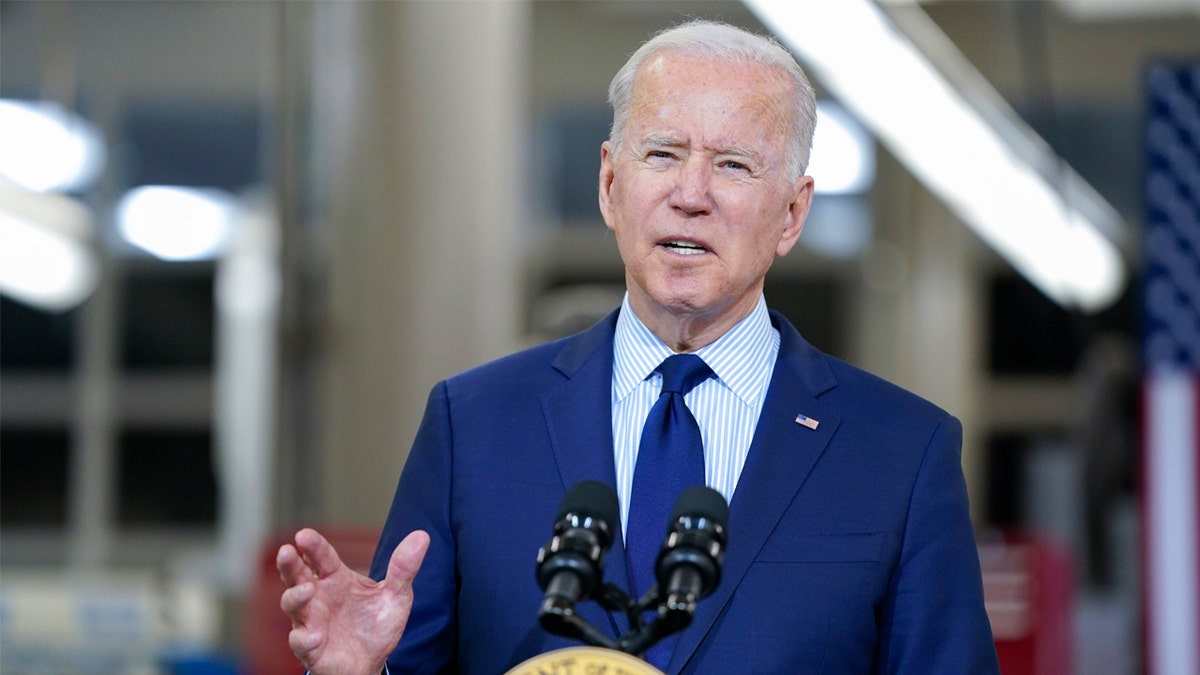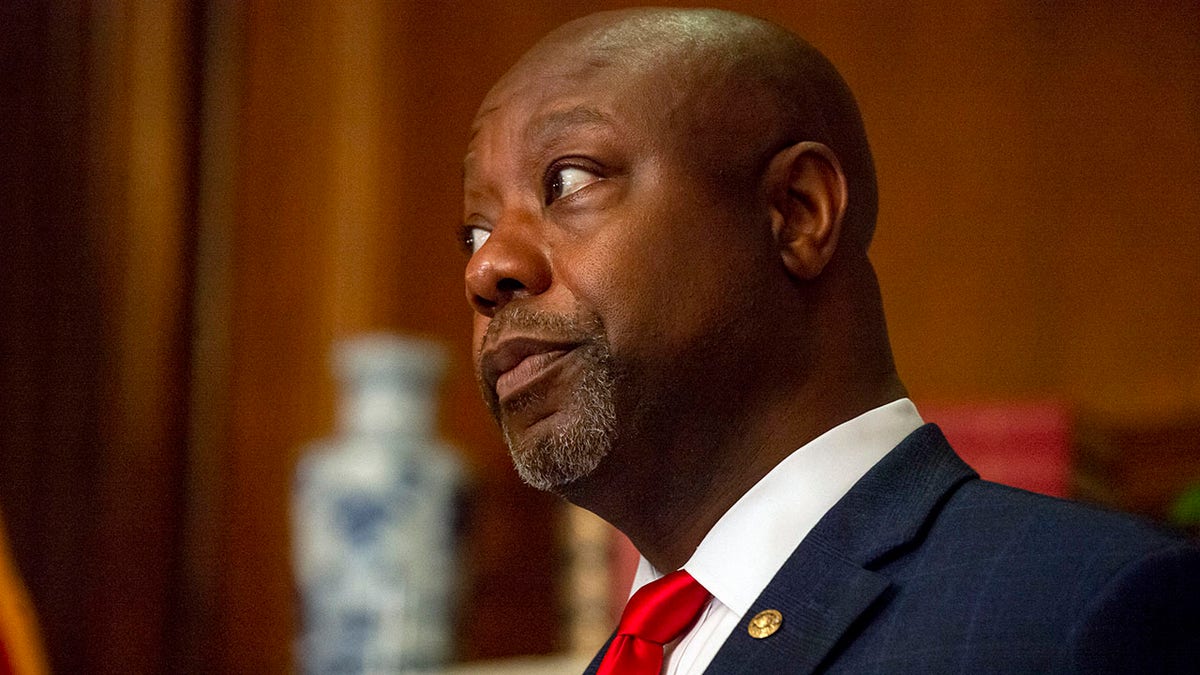Fox News Flash top headlines for June 1
Fox News Flash top headlines are here. Check out what's clicking on Foxnews.com.
As President Biden announces a set of policies Tuesday aimed at combating racial inequality in Tulsa, Oklahoma, race-related issues continue to simmer in American politics, stoking partisan divisions and potentially stalling some of the measures the president will announce.
Biden will make his remarks on the 100th anniversary of a 1921 race massacre in Tulsa in which a White mob killed at least 300 Black people in the city's Greenwood district. That area at the time was known as "Black Wall Street" for its thriving primarily minority-owned businesses. There, the president will announce a set of policies aimed at shrinking the "racial wealth gap."
But sharp divisions remain on a litany of issues both race-related and not – all the way down to whether the United States itself is a systemically racist country. Biden himself acknowledged the major divisions in the country in his Memorial Day address Monday, saying that the United States is in a "struggle for the soul of America itself."
"The soul of America is animated by the perennial battle between our worst instincts, which we've seen of late, and our better angels," Biden said. "Between ‘me first’ and ‘we the people.’ Between greed and generosity. Cruelty and kindness. Captivity and freedom."

President Joe Biden delivers remarks on the economy at the Cuyahoga Community College Metropolitan Campus, Thursday, May 27, 2021, in Cleveland. Biden will be in Tulsa, Oklahoma, on Tuesday, the site of the one of the worst race massacres in American history. (AP)
BIDEN SPEECH COMMORATING TULSA RACE MASSACRE TO DETAIL EFFORTS TO COMBAT RACIAL INEQUALITY
One of the animating issues on race this year has been voting legislation, both on the state and federal level. Republicans passing state election security laws say they simply aim to ensure elections run more smoothly and with less risk of fraud. Those who support these laws, particularly the most high-profile one in Georgia, often point to some fact-checks that say these laws expand voting opportunities when taken as a whole.
But Democrats say ID provisions and other elements of these laws are aimed at undercutting the ability of Black people to vote. Atlantic writer Jemele Hill said Republicans "resent that their power was taken away by black voters" and "want a rigged game." Biden, meanwhile, called the Georgia law and others "Jim Crow laws." And he took another apparent swipe at state-level election laws in his Memorial Day remarks Monday.
After warning that the U.S. is in the middle of a "struggle for the soul of America itself," Biden continued to say that "democracy thrives when the infrastructure of democracy is strong; when people have the right to vote freely and fairly and conveniently… when the rule of law applies equally and fairly to every citizen, regardless of where they come from or what they look like."
Conversely, a Democrat-backed voting bill in Congress that Republicans call a "power-grab" is nearly certain to stall in the coming weeks. But Democrats say the bill is needed to expand voting rights and protect minority voters. "Why are you so afraid of democracy?" Senate Majority Leader Chuck Schumer, D-N.Y., asked Republicans in a hearing.
Some progress has been made on police reform in recent months, with top negotiators as recently as last week saying they were optimistic about the prospects for an agreement that could pass the Senate. Sen. Cory Booker, D-N.J., said "a lot of progress" is being made and "everybody wants to get something really meaningful done."
Sen. Tim Scott, R-S.C., the top negotiator for Republicans, added that "we can see the end of the tunnel."

Sen. Tim Scott, R-S.C., poses before a meeting with Seventh Circuit Court Judge Amy Coney Barrett, President's Trump's pick for the Supreme Court, in the Mansfield Room of the U.S. Capitol on September 29, 2020. Scott, Republicans' top negotiator on police reform, declared in his rebuttal to President Biden's address to a joint session of Congress that the U.S. is not racist. (Photo by Bonnie Cash-Pool/Getty Images) (Getty Images)
But Scott and Booker, both of whom are Black, will have to negotiate the looming possibility that left-wing House Democrats could defect from a bill if it moves too far toward Republicans' position in the Senate. Last month a group, primarily consisting of progressive "Squad" members like Rep. Alexandria Ocasio-Cortez, D-N.Y., said any police reform bill "must" end qualified immunity, a protection that shields government officials like police officers from personal liability in some cases when they violate a person's rights.
TULSA MASSACRE DOCUMENTARIES OFFER DEEP DIVE INTO TRAGEDY
"Given that police violence, as a weapon of structural racism, continues to have devastating and deadly consequences for Black and brown lives across our country, we strongly urge you to not only maintain but strengthen the provision eliminating qualified immunity as negotiations in the Senate continue," a letter from the left-wing House lawmakers read.
Many Republicans have drawn red lines at changes to qualified immunity, signaling that a bill that makes changes to it couldn't get the necessary 10 votes in the Senate. The "Squad" members did not explicitly threaten to vote against anything that doesn't address qualified immunity. But if they do, they could potentially sink the legislation in the House if not enough Republicans cross the aisle to vote for it.
These negotiations are happening against the backdrop of a fundamental disagreement of whether the United States is structurally racist, as many Democrats claim.
"Hear me clearly: America is not a racist country," Scott said in his rebuttal to Biden's address to a joint session of Congress. "It's backwards to fight discrimination with different types of discrimination, and it's wrong to try to use our painful past to dishonestly shut down debates in the present… Race is not a political weapon to settle every issue the way one side wants."
Vice President Harris herself said she does not think the United States is fundamentally racist. Nevertheless, many Democrats slammed Scott for his comments.
Biden's proposals on Black wealth Tuesday include multiple provisions that themselves could fall victim to a divided Congress. A variety of funds, grants and tax credits will be in the president's "American Jobs Plan," according to a White House fact sheet. But negotiations over that bill, ostensibly an "infrastructure" plan, have already been going on for weeks with Senate Republicans. They say they want a bill that addresses hard infrastructure rather than the broad definition of infrastructure the White House supports.
All of this is happening as even more race-related issues loom in the background. These include increased attacks on Jewish Americans as some Democrats condemn Israel over its handling of Hamas rocket attacks. This issue has divided the Democratic Party itself, with some alleging that those who are behind charged anti-Israel rhetoric are not doing enough to tamp down anti-Semitism.
"I’ll say the quiet part out loud; it’s time for ‘progressives’ to start condemning anti-semitism and violent attacks on Jewish people with the same intention and vigor demonstrated in other areas of activism," Rep. Dean Phillips, D-Minn., tweeted last month. "The silence has been deafening."
Meanwhile, Rep. Marjorie Taylor Greene, R-Ga., attracted allegations of anti-Semitism herself with comments comparing mask-wearing to Nazis forcing Jewish people to wear yellow stars during the Holocaust.
And many right-leaning parents and activists are recoiling over "critical race theory" and other race-related lesson plans that Democrats support being taught in schools. This has led some state Republican lawmakers to support efforts to limit such lessons.
There's also the specter of last year's widespread protests against police brutality and racism, which often turned into riots and became one of several wedge issues in the 2020 presidential election.
CLICK HERE TO GET THE FOX NEWS APP
The riots themselves might not come back. But debate on them seems nearly certain to emerge, especially as the 2022 elections near. A human embodiment of those riots, Mark McCloskey, is running in the GOP primary to replace retiring Sen. Roy Blunt, R-Mo. McCloskey became famous when he and his wife Patricia wielded guns as they faced down a wave of protesters walking through their neighborhood.
"God came knocking on my door disguised as an angry mob. It really did wake me up," he said on "Tucker Carlson Tonight." "As I campaigned for [Donald Trump], and we've continued to do rallies and events supporting our constitutional rights, what I've learned is that the people are sick and tired of cancel culture – and the poison of critical race theory and the big lie of systemic racism."
Fox News' Houston Keene and Thomas Barrabi contributed to this report.






